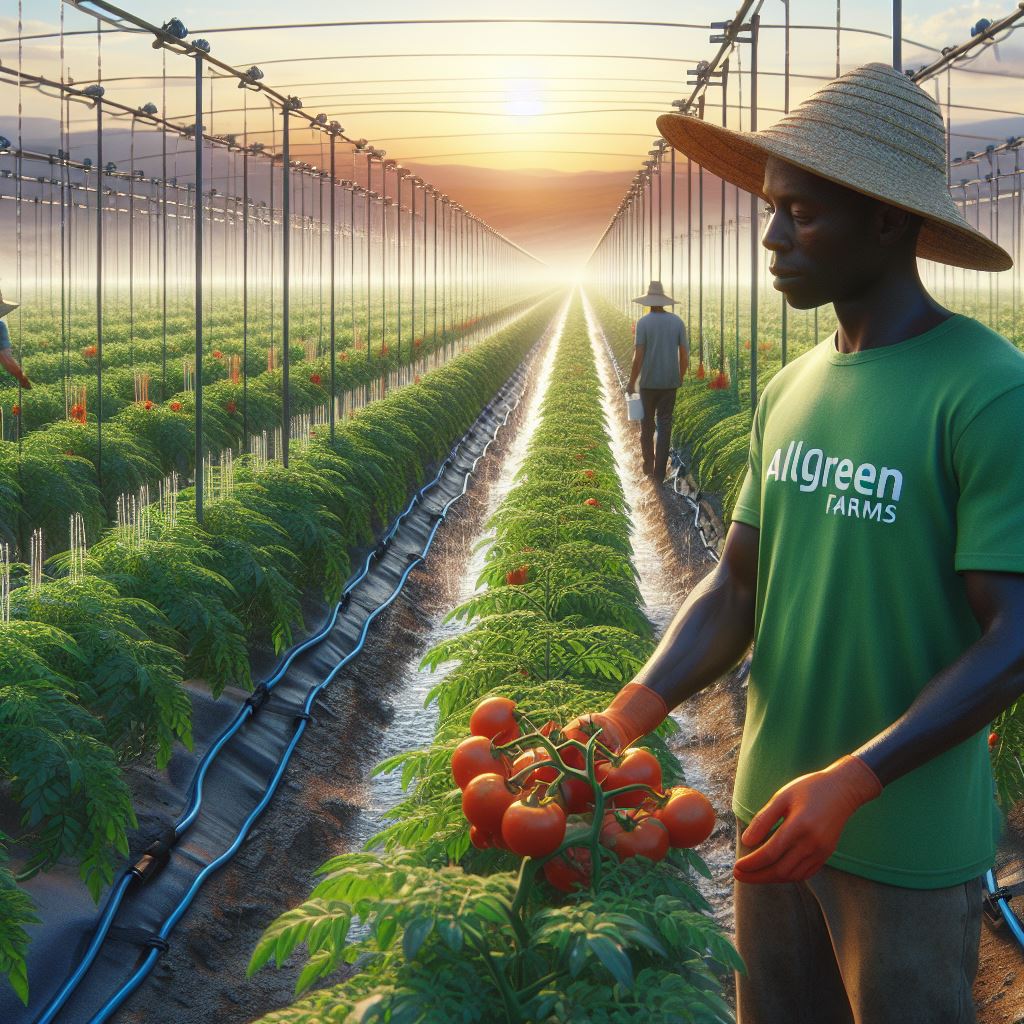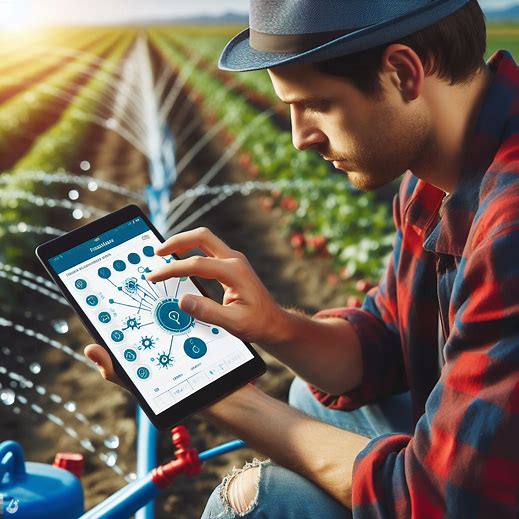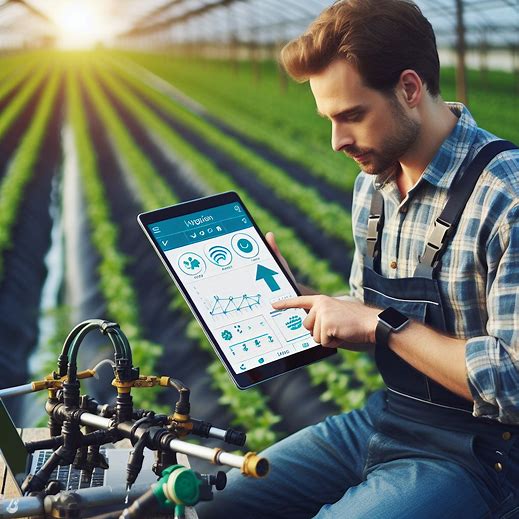
Water is a precious and scarce resource, especially for agriculture, which accounts for about 70% of global freshwater use. With climate change, population growth, and urbanization, the demand for water is expected to increase, while the availability and quality of water are expected to decrease. This poses a serious challenge for farmers, who need to produce more food with less water, while also protecting the environment and their livelihoods.
Fortunately, there is a solution: smart irrigation systems. Smart irrigation systems are systems that use technology, such as sensors, weather data, automation, and artificial intelligence, to optimize water use and irrigation management. Smart irrigation systems can help farmers save water, improve crop yields, and enhance sustainability. In 2024, smart irrigation systems are expected to become more accessible, affordable, and advanced, as more innovations and initiatives are developed and implemented.
In this blog post, we will show you how smart irrigation systems can save water and boost yields in 2024, and what are the benefits, features, and examples of this technology.
What are Smart Irrigation Systems?
Smart irrigation systems are systems that use technology to monitor and control irrigation, based on the specific needs of each crop and field. Smart irrigation systems can collect and analyse data from various sources, such as soil moisture sensors, weather stations, satellite images, and crop models, to determine the optimal amount, timing, and frequency of irrigation. Smart irrigation systems can also automate the irrigation process, using devices such as valves, pumps, sprinklers, and drip emitters, to deliver water precisely and efficiently to the plants. Smart irrigation systems can also be remotely monitored and adjusted, using mobile apps and online platforms, to provide flexibility and convenience for farmers.
Smart irrigation systems have several advantages over conventional irrigation systems, such as:
They save water: Smart irrigation systems can reduce water consumption by up to 50%, by avoiding overwatering, under-watering, evaporation, and runoff. Smart irrigation systems can also use alternative water sources, such as rainwater, wastewater, and groundwater, to supplement or replace freshwater.
They improve yields: Smart irrigation systems can increase crop yields by up to 30%, by providing optimal water and nutrient delivery, enhancing crop growth and quality, and preventing water stress and diseases. Smart irrigation systems can also enable crop diversification, by allowing farmers to grow different crops in different seasons and climates.
They enhance sustainability: Smart irrigation systems can contribute to environmental and social sustainability, by reducing greenhouse gas emissions, nutrient leaching, soil erosion, and water pollution, and by improving food security, income, and resilience for farmers and communities.
You may also like Aquaponics Demystified, merging Aquaculture and Hydroponics for sustainable farming in 2024
How Smart Irrigation Systems Can Save Water and Boost Yields in 2024?
To save water and boost yields in 2024, smart irrigation systems need to address the current and emerging challenges and opportunities of the agricultural sector, such as:
Adapting to climate change: Climate change affects the availability and variability of water, the occurrence and intensity of droughts and floods, the distribution and severity of pests and diseases, and the demand and prices of agricultural products. Smart irrigation systems can help farmers adapt to climate change, by providing them with real-time data and alerts, enabling them to adjust irrigation schedules and practices accordingly, and by using climate-smart practices, such as crop rotation, mulching, and cover cropping, to improve soil health and water retention.
Leveraging digital technologies: Digital technologies offer a great potential to improve the efficiency, quality, and sustainability of the agricultural sector, as they enable the collection and analysis of large amounts of data, the automation and optimization of processes, the communication and collaboration of actors, and the access and delivery of information and services. Smart irrigation systems can leverage digital technologies, by integrating with various tools and platforms, such as sensors, drones, satellites, GPS, data analytics, blockchain, cloud computing, and internet of things, to enhance data accuracy, reliability, and security, and to provide customized and scalable solutions for different contexts and needs.
Promoting social inclusion and equity: Social inclusion and equity are essential for the development and well-being of rural communities, as they ensure that all people have equal opportunities and rights to participate and benefit from the agricultural sector, regardless of their gender, age, ethnicity, disability, or other factors. Smart irrigation systems can promote social inclusion and equity, by providing them with affordable and user-friendly technologies, empowering them with knowledge and skills, and involving them in decision-making and governance processes, and by creating and strengthening linkages and partnerships among different stakeholders and sectors.
By addressing these challenges and opportunities, smart irrigation systems can bring various benefits and outcomes for farmers and the environment, such as:
Saving water: Smart irrigation systems can save water, by using data and algorithms to determine the optimal irrigation schedule and amount, by automating the irrigation process to deliver water precisely and efficiently, and by using alternative water sources to supplement or replace freshwater.
Boosting yields: Smart irrigation systems can boost yields, by providing optimal water and nutrient delivery, enhancing crop growth and quality, and preventing water stress and diseases, and by enabling crop diversification, by allowing farmers to grow different crops in different seasons and climates.
Enhancing sustainability: Smart irrigation systems can enhance sustainability, by reducing greenhouse gas emissions, nutrient leaching, soil erosion, and water pollution, and by improving food security, income, and resilience for farmers and communities.

Conclusion
Smart irrigation systems are systems that use technology to optimize water use and irrigation management. Smart irrigation systems can help farmers save water, improve crop yields, and enhance sustainability. In 2024, smart irrigation systems are expected to become more accessible, affordable, and advanced, as more innovations and initiatives are developed and implemented.
In this blog post, we have shown you how smart irrigation systems can save water and boost yields in 2024, and what are the benefits, features, and examples of this technology. Whether you are a farmer, a researcher, a policymaker, or a consumer, smart irrigation systems can offer you a rewarding and meaningful way of contributing to the water-wise and climate-smart agriculture of the future. Join us in cultivating not just crops, but a legacy of smart irrigation, where technology and farming work together to create a sustainable and thriving future.



